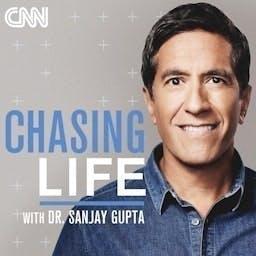Dr. Adam Dorsay introduces SuperPsyched and frames the growing misinformation problem, citing low trust in traditional media , the rise of influencer-based news consumption among 18–29 year olds, research that false news spreads faster than truth on Twitter, and the World Economic Forum ranking misinformation/disinformation as the most severe global risk in 2024 and 2025. He interviews Dr. Avi Tuschman (Stanford StartX serial entrepreneur; Stanford doctorate in anthropological science; expert on human political bias) about Crickit.ai (C-R-I-C-K-I-T), an AI tool that provides real-time in-stream fact checks for social media videos, starting with YouTube on desktop. The discussion covers why misinformation spreads (high-arousal content, negativity bias, suggestibility, and attention scarcity), why it affects everyone (including errors/omissions/exaggerations in reputable content), and the relationship between media ecosystems, polarization, and a global democratic recession. Avi raises concerns about TikTok’s influence, urging people over 30 to review its “society” content, citing examples of high-production disinformation, alleged foreign influence efforts, elevated WWII revisionism compared with Instagram (UNESCO figure of 5.7x), and medical misinformation (e.g., a study finding ~25% of asthma content has significant misrepresentations and is overrepresented in viewing). He describes Crickit’s user experience as subtitle-like overlays with a pause expansion panel summarizing evidence in ~40–50 words, and positions it as a tool to build media literacy and critical thinking—like a flight simulator for evaluating persuasion and uncertainty. Plans include mobile support and additional platforms, potentially later in the year, though TikTok is not supported yet. Avi offers listeners a discount via promo code/URL “SUPERPSYCHED" for monthly subscription savings for up to three years.
00:00 Welcome to SuperPsyched + Why Misinformation Is Surging
00:55 The Numbers: Trust in Media, Influencer News & Falsehoods Spreading Faster
01:45 Meet Dr. Avi Tuschman & Crickit.ai—Real-Time Fact-Checks for YouTube
03:59 Why Avi Built Crickit: Science, Truth, and the 2018 Wake-Up Call
05:31 How Crickit Works (and Why It’s Not ‘Just a Chatbot’)
07:49 Inside the Engine: Claim Extraction, Source Cross-Checks & Reliability Ratings
10:05 Accuracy, Benchmarks & Why ‘Good Enough’ Beats the Status Quo
12:22 Misinformation’s Sneakiest Trick + Even ‘Trusted’ Videos Get Things Wrong16:09 Why BS Goes Viral: Attention Economics, High-Arousal Content & ‘The Medium Is the Message’
19:06 Pinocchio, Crypto Scams & ‘The Conscience of Content’ Origin Story
21:53 Human Suggestibility, Hypnosis, and the Social Media Influence Gap
25:02 The Paradox: We Need Influence to Survive—But Negativity Bias Warps It
25:37 Fear, Negativity Bias, and the Cost of Believing Bad Info
26:19 TikTok’s Mental Health Misinformation Problem
27:47 Why TikTok Is More Than ‘Dance Videos’—A Civic-Duty Reality Check
29:08 Propaganda, Fake Viral Videos, and WWII/Holocaust Revisionism
31:35 Can ‘Crickit’ Fact-Check TikTok? Roadmap and Timeline
32:31 How Crickit Works: Real-Time Overlays, Categories, and Rationale Panels
34:14 Training Critical Thinking: Ambiguity Tolerance, System 1 vs System 2
39:05 BS Is Omnipresent: Humility, Corrections, and Learning You’re Wrong
40:40 Media Literacy Gap + Crickit as a ‘Flight Simulator’ for Critical Thinking
42:40 Wrap-Up: Promo Code, Name Teasing, and the One Skill Humanity Needs
Helpful Links:
Avi Tuschman LinkedIn
Crickit.ai
Helpful Links:
Avi Tuschman LinkedIn
Crickt




































